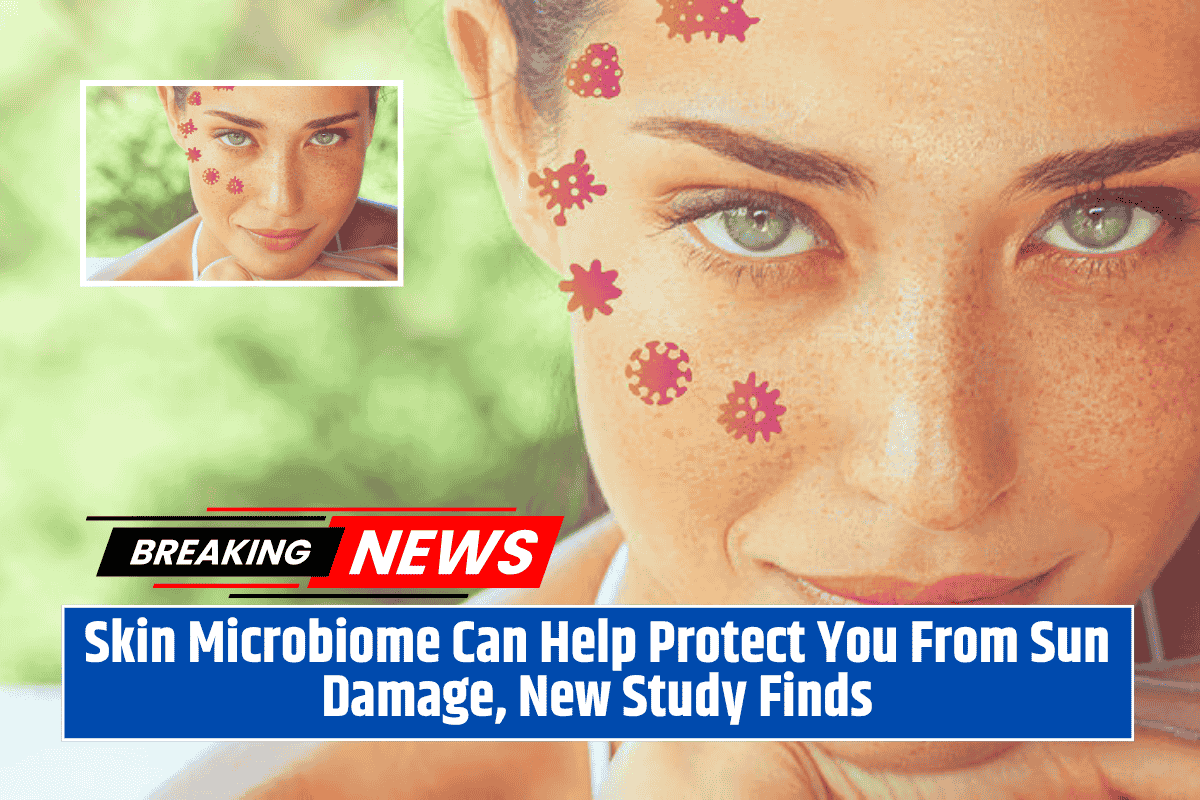A new study has found something amazing about the bacteria living on your skin — some of them may actually help protect you from the sun’s harmful UV rays. These skin microbes can do this by breaking down a chemical called cis-urocanic acid, using a special enzyme named urocanase. This process helps the skin manage how it reacts to sun exposure.
The research, published in the Journal of Investigative Dermatology, shows that our skin microbiome — the collection of bacteria, fungi, and viruses on the skin — isn’t just harmless or helpful for general health. It can also influence our immune system and how we respond to sunlight.
How Skin Bacteria Interact With Sunlight
Your skin hosts millions of tiny microorganisms. These commensal microbes usually live peacefully on our skin, feeding on its natural oils and nutrients. But now scientists have discovered that some of them play a more active role — especially when your skin is exposed to UVB radiation, which is the kind that causes sunburn.
Researchers found that when UVB rays hit the skin, a chemical called trans-urocanic acid changes into cis-urocanic acid, which has strong effects on the immune system. Some skin bacteria can break this chemical down using urocanase. This reduces the chemical’s impact and helps the body better manage its immune response to UV rays.
A Link Between Microbes, Sunlight, and Immunity
The team, led by Dr. VijayKumar Patra and co-investigators Dr. Marc Vocanson and Dr. Peter Wolf, used a mix of lab studies, mouse models, and gene sequencing to understand this process. Their study is the first to show a direct link between UV exposure, a skin chemical, and bacterial behavior that affects immune health.
The researchers also noted the interaction between sunscreens, UV radiation, and skin microbes. All three compete at the surface of the skin — especially in the topmost layer called the stratum corneum.
What This Means for Future Skin Care
This new understanding opens the door to “microbiome-aware” sun protection. Instead of just blocking UV rays, future sunscreens or skincare products might work with skin bacteria to better protect the skin and control immune responses. This could be especially useful in treating conditions like skin cancer, immune-related skin disorders, or for improving phototherapy — a treatment that uses light to manage skin diseases.
Experts See Big Potential
Dr. Anna Di Nardo, an expert in dermatology, says this study proves that microbes are not just passive residents on our skin — they actively shape how our immune system responds to sunlight. This discovery could change how we view sun protection, skin aging, and disease prevention in the years to come.
This exciting study shows that the skin microbiome does more than just exist — it plays an active, protective role when our skin is exposed to the sun. As science continues to explore how microbes and human cells work together, we may soon see new types of skincare and sun protection that use these findings to keep our skin healthier and stronger.
FAQs
How does the skin microbiome protect against UV radiation?
Certain skin bacteria can break down a UV-related chemical called cis-urocanic acid using an enzyme called urocanase. This process reduces the chemical’s immunosuppressive effect and helps the skin manage its response to sunlight.
What is cis-urocanic acid and why is it important?
Cis-urocanic acid is formed when UVB rays hit the skin and convert trans-urocanic acid. It has strong effects on the immune system and can suppress immune responses. Some bacteria can break it down, helping the body respond better to UV exposure.
Can this discovery change how we use sunscreen?
Yes. The study suggests future sun protection could consider how skin bacteria affect immune responses to UV light. Skincare products might be designed to support or interact with the skin microbiome for better results.
What makes this study unique?
This is the first study to show a direct connection between UV radiation, a chemical created by the skin, and how bacteria break it down to influence the immune system.
What could this mean for future skin treatments?
Researchers may develop microbiome-aware skincare and sun protection products. These could help manage immune responses, prevent skin damage, and improve therapies like phototherapy.
